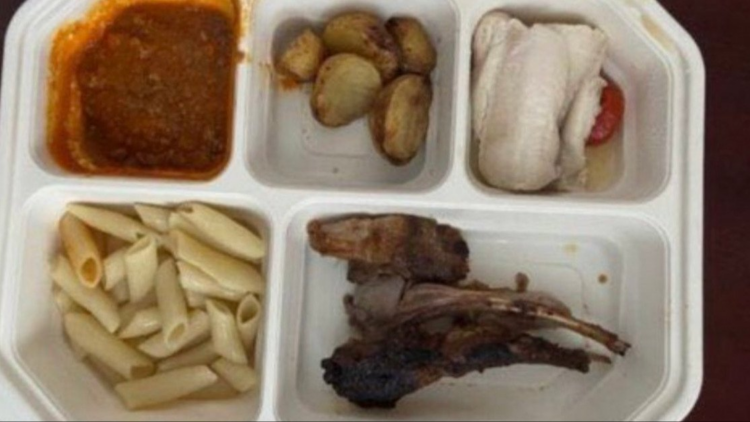Although most of us understand it takes a level of training and dedication that would overwhelm most of us to make it to the Olympics, the challenges that athletes have to overcome don’t exactly stop once they get there.
And while that may sound obvious since they’re competing with the best athletes in the world, they can face just as many obstacles outside of the events themselves. Since every host nation and every host city will handle the games differently, it’s a toss-up as to whether athletes will spend their time between games in a state-of-the-art Olympic village or a mismanaged nightmare.
They’ll also find that specific aspects of their accommodations can range from the strange to the unreasonable, and based on reports from inside this year’s Winter Games “bubble,” some athletes would put their experiences into that second category.
To deal with the ongoing pandemic, athletes who test positive for COVID-19 are transferred from the Olympic Village into designated quarantine hotels.

According to AP News , they remain there until they’re either hospitalized or cleared to compete. But in that time, representatives from multiple teams are alleging that athletes are subject to substandard conditions that could compromise their ability to participate.
German delegation head Dirk Schimmelpfennig has been among the most vocal critics, saying that athletes are dealing with “unreasonable” living conditions due to small, unhygienic rooms, low quality food, and a lack of access to training equipment.
Concerns regarding the food became particularly prominent after Russian biathlete Valeria Vasnetsova posted what she had been eating for the last five days on Instagram.
Although her account has since been made private, CBS Sports reported that she claimed to only be eating three handfuls of pasta like the portion we see here each day because the rest of the food was “impossible to eat.”
She also stated that she sleeps all day because she doesn’t have the strength to get out of bed and that the outline of her bones are becoming more visible due to weight loss.
In her words, “My stomach hurts, I’m very pale and I have huge black circles around my eyes. I want all this to end. I cry every day. I’m very tired.”
She also reported checking out the contents of other food boxes on her floor and coming to the conclusion that the substandard food was specifically set aside for athletes.

She noted that her team doctor had received prawns, broccoli, salad, and fresh fruit.
As she put it, “I honestly don’t understand, why is there this attitude to us, the athletes?!”
After Vasnetsova’s situation went public, her team’s spokesperson Sergei Averyanov showed that an improved meal of salmon, yogurt, sausages, and cucumbers had been delivered to her. According to AP News, she’s also expected to receive an exercise bike soon.
The fresh fruit scarcity and other food quality issues have also been reported outside of these quarantine hotels and within the Olympic village itself.

According to Insider , a manager of one of the hotels used for this village called his own restaurant’s food “disgusting” and due to the strict nature of the “bubble environment” at Beijing’s Olympic facilities, no outside food can be brought in to supplement what’s available.
The buffets at the Shangri-La hotel and the restaurant at the Marco Polo Hotel appear to serve as exceptions to these issues, but it nonetheless seems that some athletes could have rough days ahead if them until the games draw to a close on February 20.
h/t: AP News

















































